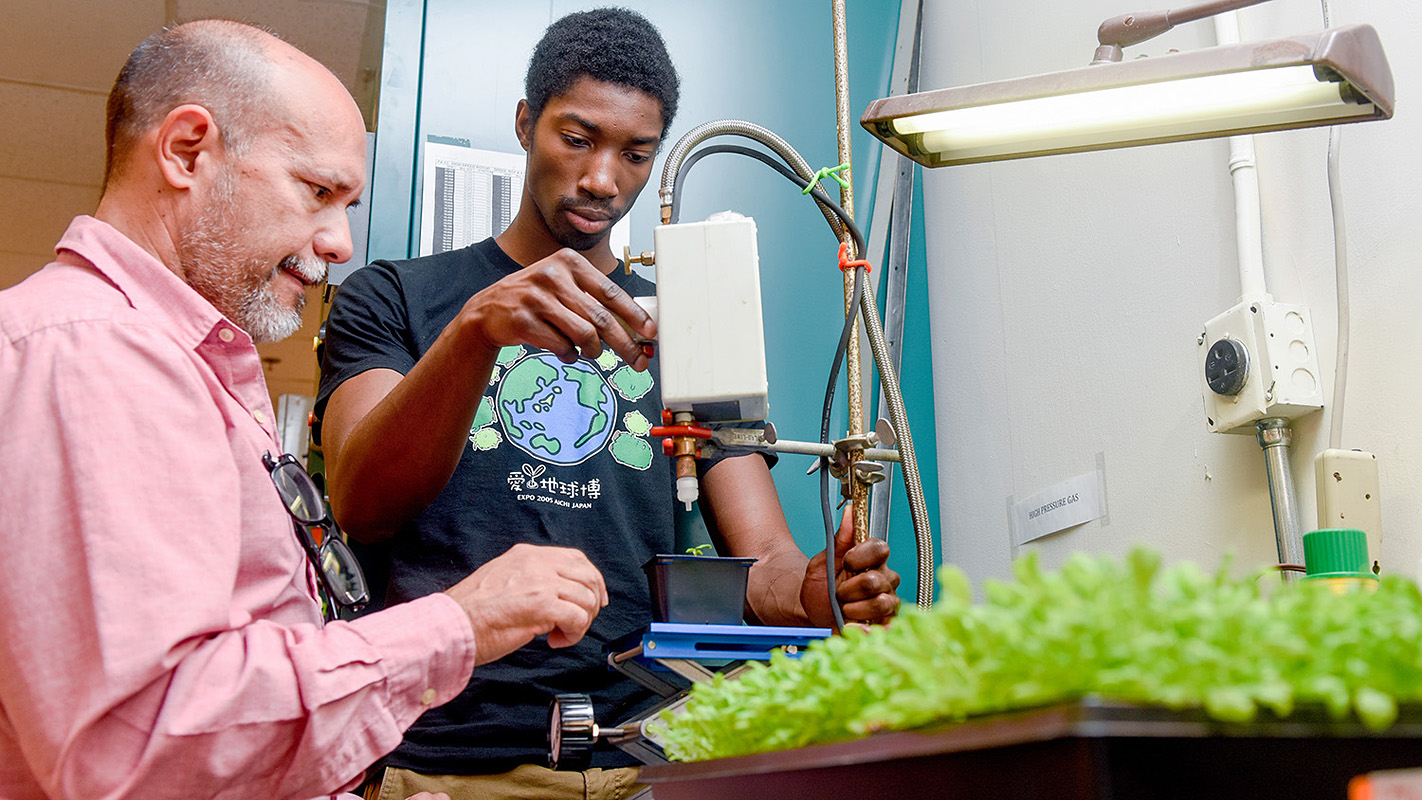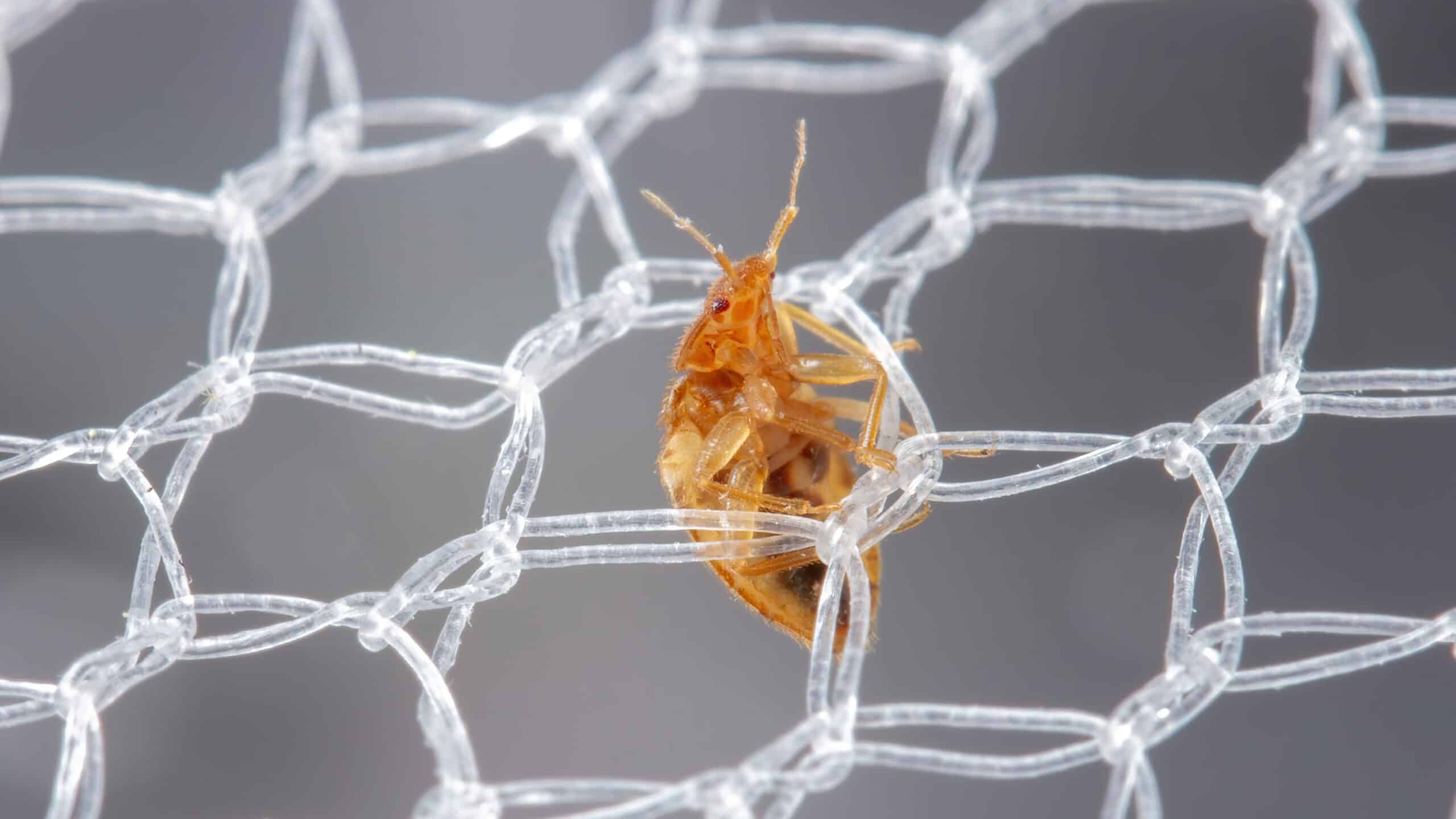Gates Grant Helps NC State Solve Molecular Mysteries

An ongoing NC State partnership to defeat a disease of a key African food crop got a boost recently when the project received a $2.15 million grant from the Bill & Melinda Gates Foundation.
Researchers at NC State will work with their colleagues at the Mikocheni Agricultural Research Institute (MARI) in Tanzania to study DNA molecules that enhance disease symptoms and break resistance to geminiviruses that can cause major crop losses in cassava.
Cassava is a starchy, potato-like vegetable used for food, ethanol and other applications. In Africa, cassava accounts for more than a third of human calorie consumption.
Because it can thrive despite poor soil conditions and drought, it is often the only food source when other crops fail, according to Linda Hanley-Bowdoin, William Neal Reynolds Professor of Plant and Microbial Biology and principal investigator for the grant project.
Broken resistance
But Cassava Mosaic Disease has become an increasingly difficult challenge in recent decades, as farmers have found that varieties favored because of their resistance are increasingly vulnerable to disease.
In a recent issue of the Journal of Virology, Joseph Ndunguru, the co-PI on the project at MARI, Hanley-Bowdoin and their collaborators identified and characterized two novel DNA sequences that seemed to break the resistance to Cassava Mosaic Disease and make symptoms worse.
When researchers inoculated plants with the virus, they found that these sequences, or SEGS, were present in sick plants but not in healthy ones.
That research was the result of an earlier Basic Research to Enable Agricultural Development program grant from the National Science Foundation in collaboration with the Gates Foundation.
Now the researchers want to know more about how the SEGS affect disease development and whether they can find ways to disrupt the process and control the damage they cause.
Related research
As they pursue those answers, they are also working to address Cassava Mosaic Disease through an NSF Partnerships in International Research and Education grant project that also looks at how DNA viruses change over time.
That effort involves researchers and students from Rutgers and Auburn universities as well as North Carolina A&T State University, MARI and the BecA-ILRI, or Biosciences eastern and central Africa–International Livestock Research Institute, Hub in Nairobi, Kenya.
George Kennedy, of the Department of Entomology and Plant Pathology, recently spent time in Kenya with two postdoctoral scientists to set up a colony of whiteflies for research. Whiteflies transmit the cassava viruses.
Others from NC State who are involved include Ignazio Carbone, also of Entomology and Plant Pathology; education professor Timothy Goodale; and Jose “Trino” Ascencio-Ibanez, of the Department of Molecular and Structural Biochemistry.
Partnership power
Ascencio-Ibanez is also co-PI on the most recent grant from the Gates Foundation. He said that while the related projects can have a direct impact on subsistence and commercial farmers in Africa, what they are learning has significance for U.S. farmers, too.
That’s because geminiviruses are important problems in tomatoes, peppers, tomatillos and other crops important to farmers in the Americas. And trade is spreading plant diseases globally, creating the need for new control strategies.
“It’s an interaction that goes both ways – I learn from them, and they learn from us,” Ascencio-Ibanez said of his African colleagues. “We are committed to this being a two-way exchange: Bringing students, researchers and knowledge from here to there – and from there to here.”
- Categories:


